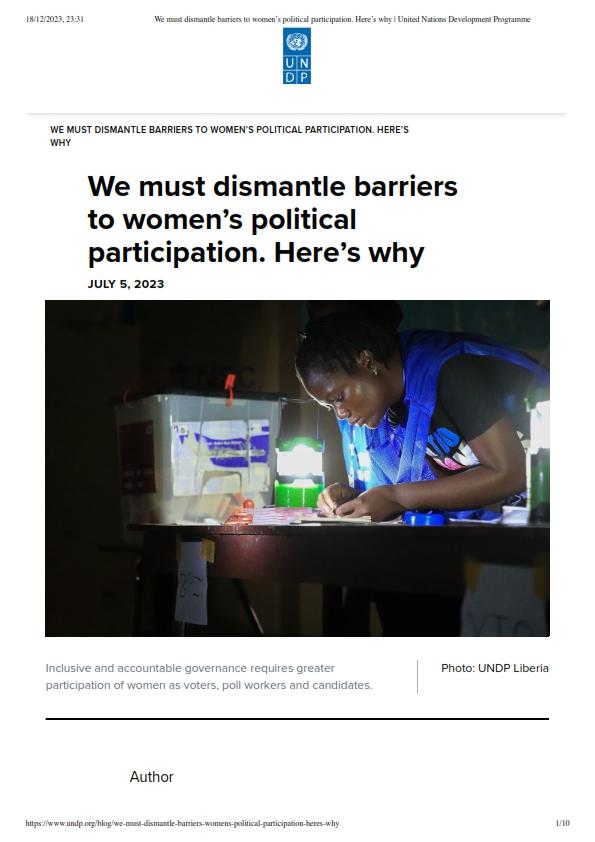We must dismantle barriers to women’s political participation. Here’s why
The author, part of the African Young Women Leaders Fellowship, discusses the importance of women's representation in public and private institutions. The United Nations Development Programme's (UNDP) Gender Social Norms Index (GSNI) is mentioned, revealing deep-rooted social norms that hinder women's progress in politics and other sectors. The document underscores the benefits of women's political participation, such as reducing the risk of civil war and state-perpetrated political violence, and fostering responsive, transparent governance.
The document also outlines the challenges women face in achieving political parity, including cultural and societal norms, and financial barriers. It mentions various measures adopted by countries, like quotas and affirmative action, to increase women's participation, but acknowledges these are insufficient for global gender parity.
Furthermore, the UNDP's work in advancing women's political participation is detailed, with projects focusing on women's participation in elections, parliaments, civic life, public administration, peacebuilding, and politics in the media. These projects aim to strengthen gender equality in governance. The document concludes by emphasizing the importance of empowering women in politics for creating more equitable, sustainable societies, and achieving a balanced, inclusive future.

